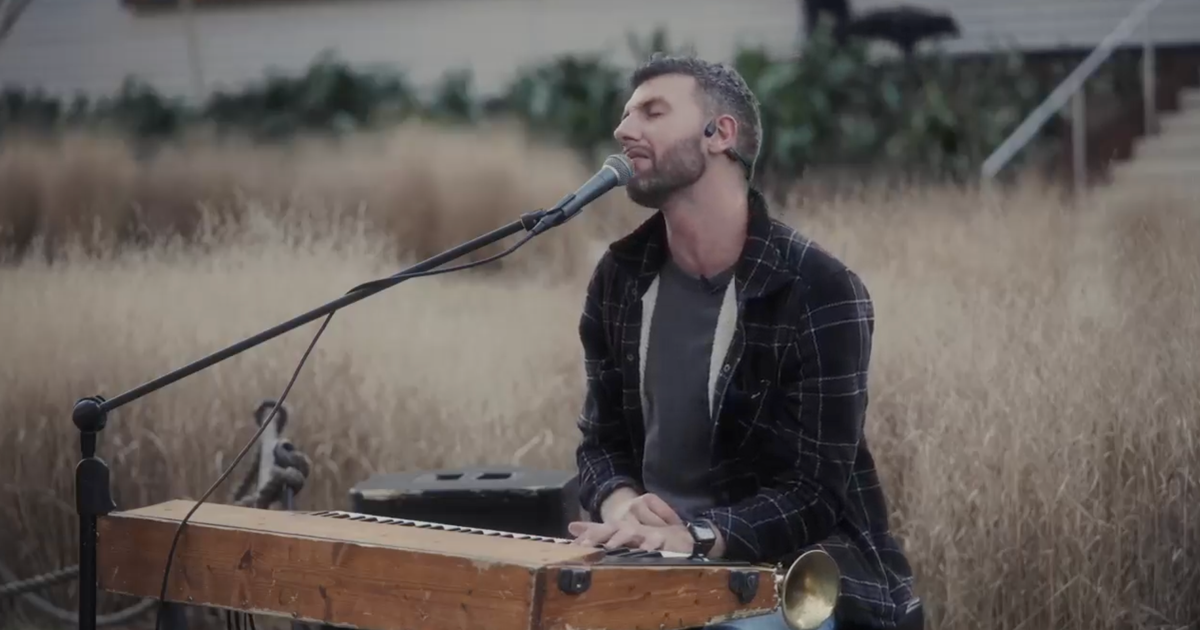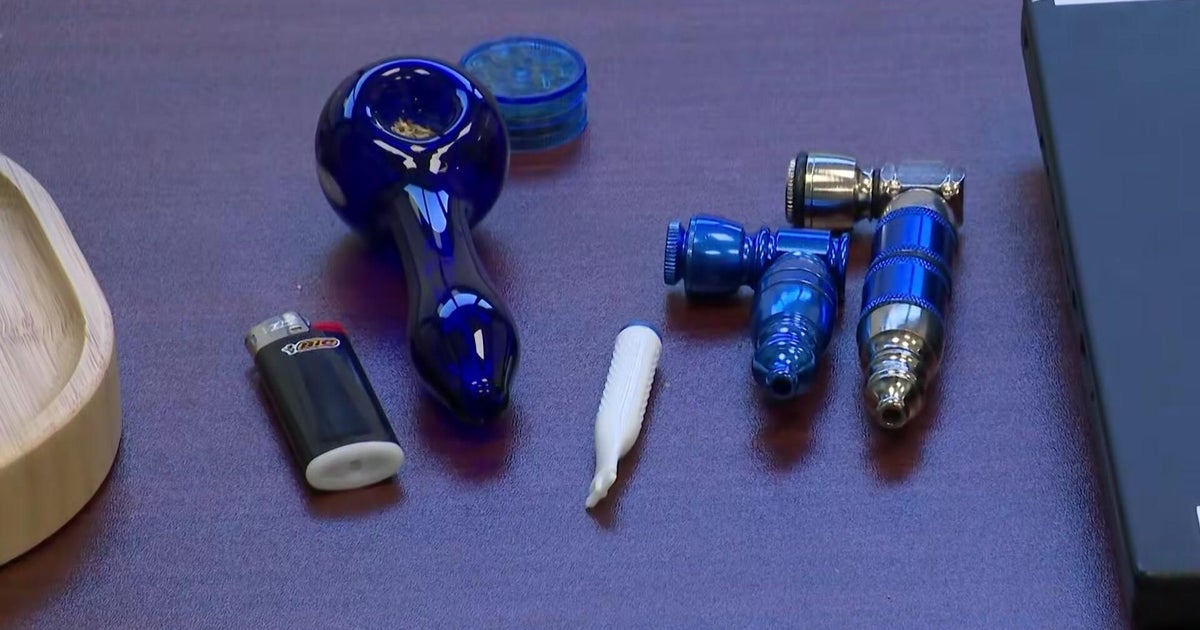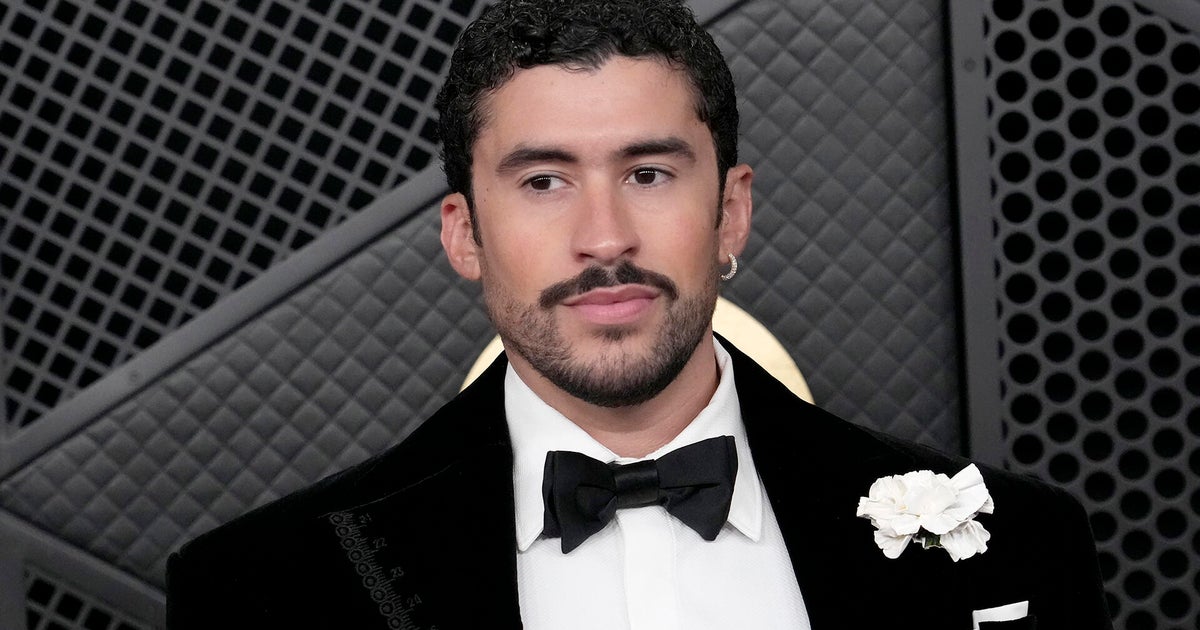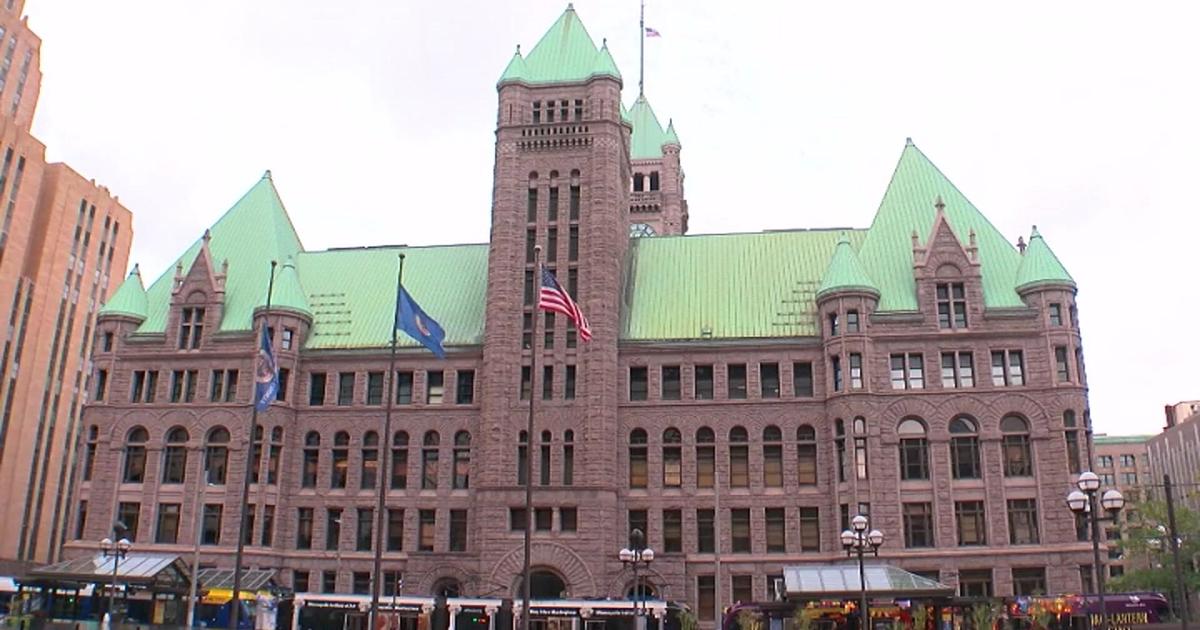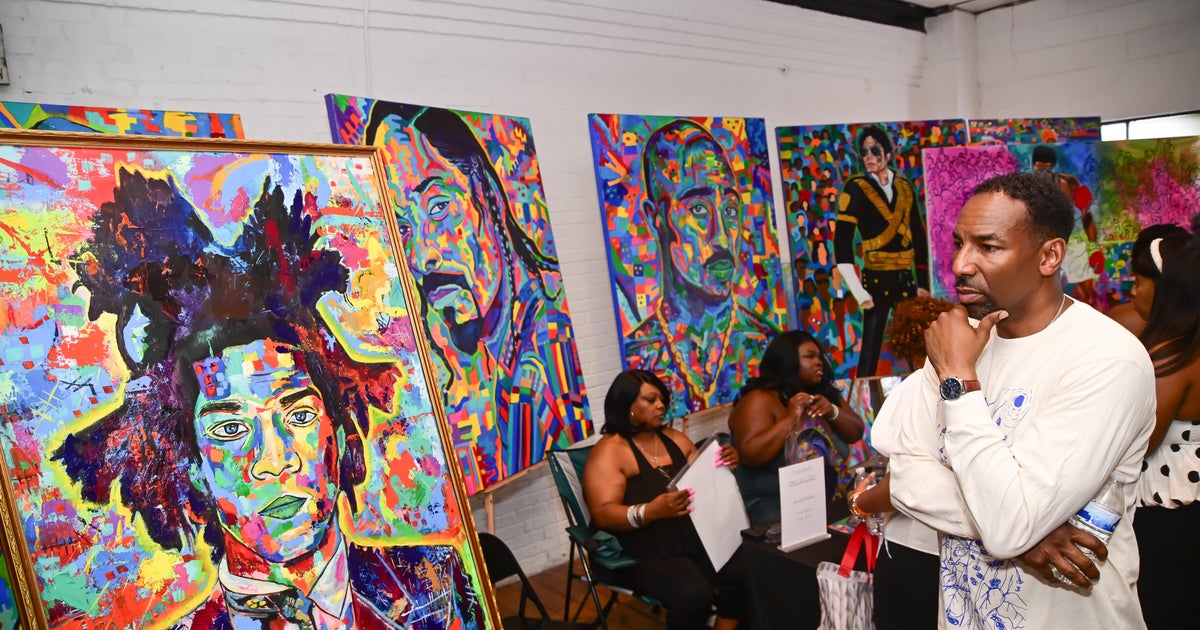Queens Pride: CBS2 explores drag culture, past and present
NEW YORK -- She's one of New York City most electric drag entertainers and a finalist on Season 13 of RuPaul's "Drag Race." She goes by "Rosé," the ambassador of the color pink.
Queens Pride:
- Remembering Julio Rivera, whose murder gave rise to Queens Pride Parade to increase visibility in Jackson Heights
- Mercy B, Lolita Leopard and Gotham Cheer excited to represent LGBTQ+ community for younger generations at Queens Pride
- Thriving multicultural LGBTQ+ community finds a home in Jackson Heights
- Love Wins Food Pantry, Queens Center for Gay Seniors helping the LGBTQ+ community, and more
- Watch the full special
- Click here for more Pride Month coverage.
CBS2 got to meet Ross, the person behind the performer. He invited us to his home to show us how he gets ready and becomes Rosé.
The transformation is a process, with layers of concealer, powder and eye makeup.
"I've been dressing up as a girl since I was a little kid," Rosé said. "My parents have always, luckily, been really supportive of that and encouraged me to chase my ridiculous dreams."
Rosé got her start competing in "Lady Liberty," a New York City drag competition six years ago. It propelled her into instant success.
"I won that competition, the whole thing," Rosé said. "I kind of just never looked back. It doesn't usually happen like that, not in New York City. You kind of have to, like, go through for a few years and pay your dues and climb the ladder."
She joined a drag trio that appeared on "America's Got Talent" and performed on "The Voice."
This year, Ross appeared as himself, stripped down of makeup, in the off-Broadway hit musical "Titanique."
"I was like, 'Oh my God,' I feel naked on the stage. I'm so vulnerable. People can see my real face. People can see my real body,'" Rosé said. "Drag is a suit of armor. It's a really thickly woven costume over you, and it's protection. I didn't necessarily realize that mine was for years."
Back in Rosé's apartment, an hour later the armor was on and she was ready.
"Hi, it's me. It's Pride and I'm proud," Rosé said.
When asked how she describes Rosé -- as a character or an alter ego, Rosé said, "Yeah, I mean, when I started drag, I used to say-- 'cause a lot of people do have a really strict and definitive alter ego, like it is like a character. Rosé never really was that in the beginning. Now, she totally is. But essentially it's just me, with no filter."
Drag is a performance art with a long history. Ancient Greeks recorded men dressing in "women's" clothing, and in 1600s England, women were banned from acting, so men played their roles. And sometimes women snuck onstage dressed in men's clothing, as depicted by Gwyneth Paltrow in the movie "Shakespeare in Love."
"We know what happened in Shakespearean times. Women were not allowed to participate in plays, so the men dressed up in drag. Japanese culture similar to kabuki theater," said "Flame," a drag queen, activist and educator.
Flame explained that, over time, drag impersonation became tied to the LGBTQ community and, therefore, it was considered a crime and had to move underground.
"Historically, many drag performers or trans people have been forced into nightlife because we have not been allowed access to be out in the light of day because of so much persecution, transphobia," Flame said.
So as way to have a career in the daylight, many performers started working drag brunches, and, more recently, reading books to children in what has become known as "Drag Story Hour."
"I was one of those queer kids that needed to see representation, needed to see that I wasn't alone," Flame said. "So many kids get bullied for the silliest things -- too skinny, too heavy, too tall, too short. This book teaches kids it's OK to be yourself no matter what you are."
- Read more: New York City Council members say they continue to endure attacks for supporting Drag Story Hour
Performers say there are many misconceptions about Drag Story Hour, but their goal is simply to encourage kids to be comfortable in their own skin.
"My daytime character feels more like a clown," "Oliver The Place" said. "Dressing up as your favorite made-up character. So for me, my character is a king, my character is a man,"
Oliver The Place is a Drag Story Hour New York City reader who identifies as non-binary. Oliver says recently a child asked about their identity.
"She goes, 'Are you a girl?' I go, 'No, I'm not a girl.' She goes, 'Are you a boy?' I say, 'No, I'm not a boy, either. I'm kind of neither. I'm kind of both. I'm kind of all over the place.' And she goes-- my name out of drag is 'Angel.' She goes, 'You're just Angel?' And I go, 'Yeah, exactly,' and she got it immediately," Oliver said.
And to those who don't get it, these queens and kings say they're not asking for approval. They're just asking for acceptance.
"In the day and age in which we live now and in this country, I think it's really important to solidify the message that drag is not dangerous. Drag is the opposite of dangerous. It is love," Rosé said.
Rosé says through all the multi-faceted layers -- the makeup, the hair, the outfits -- she has discovered herself.
Now, she's setting off for another RuPaul show -- "Drag Race World Tour."
All dressed up, with everywhere to go.

